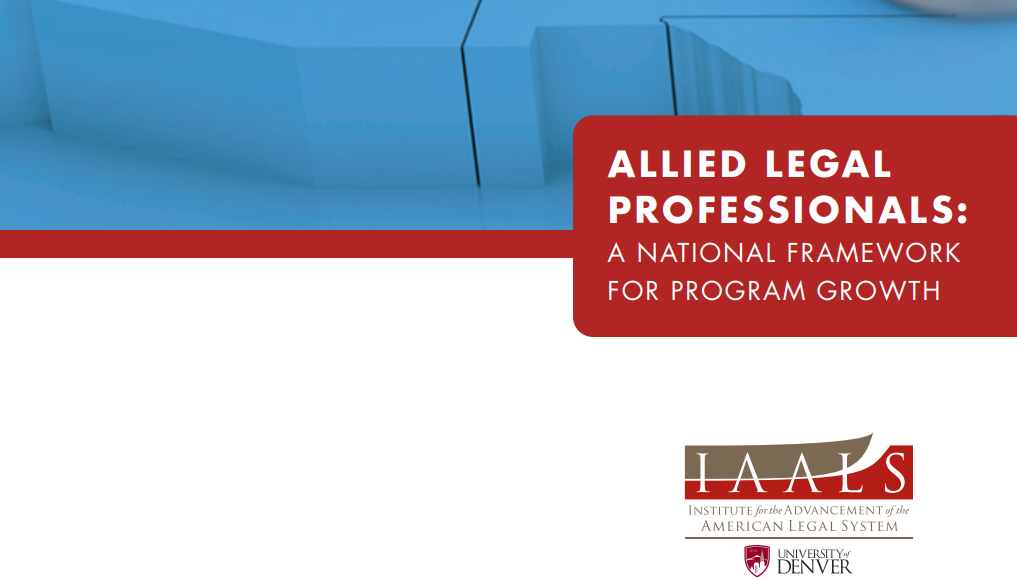IAALS, the Institute for the Advancement of the American Legal System at the University of Denver, announced the release of its new report, Allied Legal Professionals: A National Framework for Program Growth. As part of IAALS’ Allied Legal Professionals project—which is generously supported by the Sturm Family Foundation—this report includes multiple research-informed recommendations to help standardize a new tier of legal professionals across states, with the goal of increasing the options for accessible and affordable legal help for the public.
“To hire a lawyer, people either need considerable money or have an income low enough to qualify for the limited legal aid available. The problem is that the majority of people in the middle class don’t fit into either of those categories, making access to legal services incredibly difficult,” says IAALS Director of Special Projects Michael Houlberg. “Even if every lawyer took on pro bono clients, it wouldn’t come close to addressing the need. And IAALS’ research shows that people who need legal help are open to receiving it from qualified and authorized providers who are not lawyers.”
In early 2022, IAALS launched the Allied Legal Professionals project in response to an increase in state programs creating a new tier of legal service providers who target this gap in legal services—mirroring in many ways how nurse practitioners joined the medical field alongside doctors. These new providers—which collectively IAALS has referred to as allied legal professionals (ALPs)—are being authorized to provide legal advice in certain case types and under certain circumstances. Data from these programs show that ALPs are making a positive impact in people’s lives. Well-trained ALPs are competent, their clients are satisfied with their work product, and they can reach a portion of the population that lawyers are not reaching. ALPs are providing high-quality legal services at around half the cost of lawyers.
The report includes:
- A look at the broader ecosystem of legal service providers, of which ALPs are a part.
- Different stakeholders that have essential voices in creating effective ALP programs.
- High-level and on-the-ground recommendations on the various components of state ALP programs.
Access the report here: alp_national_framework.pdf (du.edu)


